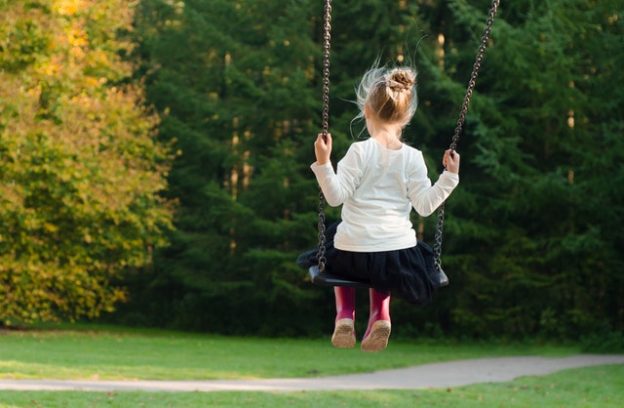(3 Minute Read)
With a dementia diagnosis, family life will likely be impacted. Children who are old enough to recognize the behavior changes in their loved ones with dementia will have questions and concerns but knowing how to address these can be difficult. Their reactions can vary from sadness to frustration to jealousy both acted out physically or emotionally. To help children cope, one of the first steps is education. From there, involving your child in the care and teaching them how to find more support are both key.
Teaching Your Children: What is Dementia?
Teaching children about dementia and its effects can help you ensure that your children know that their senior loved one’s new behaviors are not their fault. Sometimes dementia can cause irritability in seniors, and when children don’t understand what’s going on, they’re liable to take these emotions personally.
Explaining to children what dementia is and how it affects the body can help them understand the new behaviors of their loved one. It may be useful to begin by explaining that the brain is like the control center of the body, so you can describe dementia as an illness that affects how the brain works. Using analogies tailored to their interest can help children better understand what is going on. For example, for a child interested in art, you could explain the brain as a beautiful woven rug and all a person’s memories as the threads that make up the rug. Dementia can then be an illness that unravels the rug. While all the memories are still there, it’s hard to tell which from which when all the threads are just in a big knot.
Involving Your Children in Caregiving
When visits to grandpa or grandma begin to change, children may feel left out or jealous, especially if previously attention was focused on the child. For example, holidays are typically days of wonder and play for children but when grandparents suffer a dementia diagnosis, a holiday might now entail helping grandparents use the restroom or cut their food. This shift can be startling for children, especially younger children.
Instead, once you’ve explained what dementia is, it may be possible to allow children to be involved in the caregiving process. You can set up visits together with your children and schedule them regularly. Introduce simple activities that both your senior loved one and your children may enjoy like listening to music, coloring, watching a movie, taking a walk, etc.
Before you make a visit, ask your child what he/she thinks their senior loved one might want to do and give them the autonomy to ask grandpa or grandma themselves. It’s also very important to discuss the behaviors your children may witness openly with them. If grandma or grandpa are acting erratically, avoiding conversation may stimulate stress for your children.
Helping Children Seek Extra Support after a Grandparent’s Dementia Diagnosis
Regardless of how much you prepare your children, they still might need extra support. Depending on how close your child is to the person who’s been affected—grandparents, aunts and uncles, or a family friend—they may react differently. If the stress of the situation is affecting how your child interacts at school or you see other concerning behaviors like arguing or withdrawing from activities, consider finding your child someone to talk to. In many cases this may be a school counselor or a professional therapist, but it can also help to explain the situation to your child’s teacher who may be able to help them open up while at school.
At Life Settlement Advisors, we understand the importance of education resources for seniors and their loved ones. That’s why we created this e-book, Causes of a Dementia Diagnosis and the Early Warning Signs You Should Know. We hope this helps you expand your knowledge of dementia so you can have the tools you need to teach your children and inform other friends and family.
Case Study: Before John passed away, he and Jackie purchased a joint survivorship life insurance policy for federal estate tax liability. Due to the recent tax changes, Jackie no longer has a federal estate tax liability. Jackie decided to sell a portion of her policy for $95k and retained $150k in death benefit for her children.
Leo LaGrotte
Life Settlement Advisors
llagrotte@lsa-llc.com
317-863-5936

